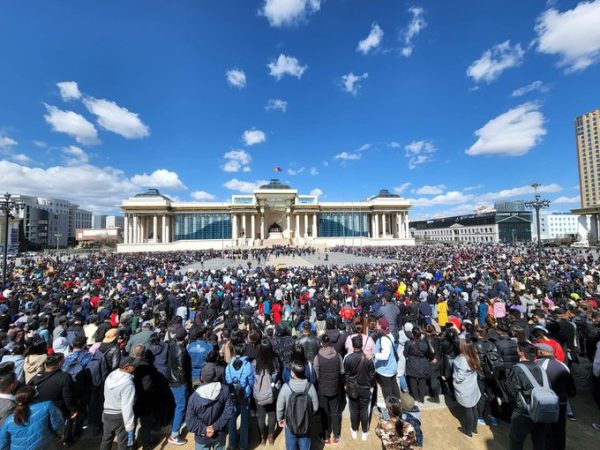Background of the Crisis
In May 2025, Mongolia’s Prime Minister, Oyun-Erdene Luvsannamsrai, is expected to call a vote of confidence following widespread protests in Ulaanbaatar. These demonstrations were sparked by allegations of corruption involving his son, Temuulen, whose lavish lifestyle, showcased on social media, has drawn public ire. The protests have highlighted broader concerns over systemic corruption, inequality, and the concentration of wealth among the political elite.
Political Fallout and Coalition Turmoil
The ongoing protests have led to significant political repercussions. The Mongolian People’s Party (MPP), the largest in the ruling coalition, expelled the Democratic Party (DP) on May 21, accusing it of breaching the coalition agreement after some of its members supported the protests. This move has further destabilized the coalition, which was formed less than a year ago. The DP, however, maintains that the views of the dissenting members do not reflect the party’s official stance.
Public Sentiment and Demand for Reform
The protests, predominantly led by young Mongolians, have been fueled by perceptions of elite impunity and unfulfilled promises of anti-corruption reforms. Demonstrators are calling for systemic changes to address the deep-rooted culture of privilege and to ensure that the country’s mineral wealth benefits all citizens, not just a select few.
Potential Outcomes and Succession Scenarios
With the prime minister’s position increasingly untenable, discussions are underway regarding potential successors. Amarbayasgalan Dashzegve, the current chairman of the State Great Khural (parliament), is considered a possible candidate. However, he has expressed reluctance to assume the role, citing concerns about preserving his professional relationships and the challenges of leading during a period of political instability.
Conclusion
Mongolia stands at a critical juncture, with the outcome of the anticipated confidence vote set to determine the future direction of its political landscape. The current unrest underscores the need for genuine reforms to address corruption and inequality, and to restore public trust in the country’s democratic institutions.











